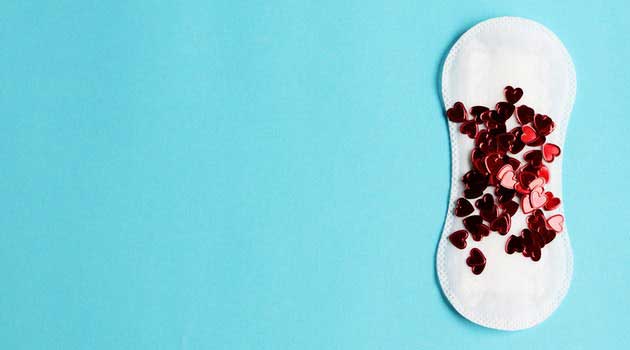We as women try to stay a step ahead of periods but a coup d’etat by uterus is always a possibility. One of my colleagues in the office recently had a situation and all the ladies in the office sat together to comfort her. While talking we realized all of us have experienced some period-related complication at one time or another.
In retrospect, I realized that the real awareness about menstruation comes very late in life for the majority of women. All of the women whom I have interacted with including my family members share a similar experience of knowing nothing in the initial stages of the period.
According to a 2016 study, there are over 355 million menstruating women in India, but most women still face significant barriers in managing menstrual hygiene. About 71% of girls in India report having no knowledge of menstruation before their first period.
Hazards of the plastic napkins
Although at this stage, there is some knowledge regarding the process of menstruation, we are still unaware of the proper care and the right kinds of products for periods.
Sanitary napkins are one of the most commonly used hygiene products during menstruation. However, these are harmful as they carry chemicals that can affect a woman’s reproductive organs. There are many hazards like inflammation in the pelvic region, cancer in the ovaries, infertility, rashes, and many more.
In an interview, Sonal Jain, co-founder of NGO Boondh says, “Pads are made of innumerable chemicals including banned carcinogenic herbicides which get absorbed through our skin and can lead to several diseases like RTIs, STIs, cervical cancer.”
Apart from the health hazards, sanitary napkins are also detrimental to the environment. Since they are made of plastic, they do not decompose easily. There is no proper mechanism for disposing of used pads as well.
Need for eco-friendly wellness products
As we realize how harmful the available wellness products are, we should put more effort into looking for healthy alternatives. Many options have been developed over time like menstrual cups, cloth pads, period panties, and others.
While menstrual health drives often distribute sanitary napkins, the responsibility does not end there. Awareness of other, more sustainable alternatives is still in its initial stages. The holistic approach to menstrual health awareness is the need of the hour.
We need initiatives like The Woman’s Company, which makes zero-waste biodegradable hygiene products for women. Its founder Anika Parashar says, “The reality is that women are wearing plastic for five days every month for thirty-five years. We use our forum to educate women. It’s about providing the products but it’s also about providing the services, we try and do both.”
Thinking back to the conversations we had I have realized that education about menstruation and period-friendly products and facilities is still in its nascent stage. Dissemination of information about menstrual hygiene is necessary on both the urban and rural levels.
Women are still unaware of common menstrual disorders like polycystic ovary syndrome (PCOS), fibroids, or endometriosis. We have to reinforce menstrual health awareness by breaking taboos around menstruation, organizing public campaigns, improving sex education, and implementing proper sanitary infrastructure for women.
